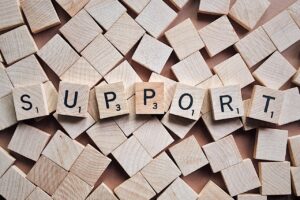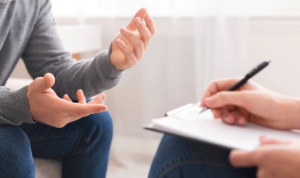Prescription drug abuse is quickly becoming one of the country’s most widespread and damaging problems. It’s more important than ever to recognize the signs someone is abusing pills to determine if a loved one is developing a substance use disorder (SUD) and needs to enroll in prescription drug rehab. Call 888.296.8976 or contact us online to connect with someone from Northpoint Recovery’s team about the signs of pill addiction, prescription pill abuse symptoms, and how we can help.
The Silent Epidemic of Prescription Pill Abuse
Regulations are better but still lack scrutiny, especially concerning pain relievers. Signs of pain pill addiction are clear, and many start with a legitimate prescription. They may be prescribed due to the following:
- Being injured on the job
- Hurt while playing sports
- Throwing out their back doing some yard work
Even if they followed their doctor’s orders, they could still have developed a physical dependence on opiates. Taking them can result in overdose deaths, the rate of which is continually on the rise in the United States. Other prescription pills are also widely abused, most notably stimulants and central nervous system (CNS) depressants. The highly addictive nature of many of these substances is making it harder to treat addictions to them effectively, especially when it comes to treating opioid addiction.
7 Signs of Pill Addiction in a Loved One
1. They Exhibit Symptoms of Prescription Drug Intoxication
The first step to identifying an abuse problem is knowing how to tell if someone is high on pills. Signs of prescription drug intoxication include the following:
- Slowed or impaired speech
- Unusual euphoria
- Loss of motor coordination
It may not be easy to distinguish between the effects of different prescription drugs, but what’s important is that you discern that intoxication is happening.
2. They Show Physical Signs of Abuse Rather than Normal Usage
To gauge if your loved one’s prescription pill use is becoming an issue, watch for changes in physical symptoms’ severity. If they’ve been on pain pills for a while and start dozing off at dinner or during conversations, these signs are concerning.
3. You’ve Noticed Changes in Their Physical Appearance
Stimulants can aid weight management, potentially causing rapid body fat loss in those abusing them. Depressants, on the other hand, often lead to quick weight gain. If you suspect prescription drug abuse, watch for unusual weight changes.
4. They Seem to Have a Decreased Interest in Former Passions and Hobbies
You may see this person start to excuse themselves from social events, or maybe they never return your calls. The key here is recognizing that they are trading normal, healthy activities that once brought them joy for spending even more time using.
5. They’re Neglecting Obligations and Responsibilities
Being addicted to prescription pills drains a lot of energy. You might see a loved one start neglecting chores they used to do willingly. And when you consider the cravings that addiction carries, especially when it comes to prescription pain medications, it’s no wonder they have such a hard time living up to their promises.
6. You’ve Noticed Missing Money, Items, or Medications
If you live with someone you suspect is struggling with addiction to prescription medication, you may have noticed that some objects around your house have gone missing. While it may be hard to believe, the person you’re living with could sell these to buy more prescription drugs.
7. Be Aware of Your Behavior
Sometimes, observing your behavior around someone can make you realize they may have an issue with prescription pills. It could be a sign if you often excuse their actions and cover for them when they neglect their duties. In that case, you may be enabling their prescription drug abuse addiction.
Find Prescription Drug Addiction Treatment in Idaho at Northpoint Recovery
It’s becoming more and more vital that you’re able to spot the symptoms of pill addiction. Doing so will help you get your loved one the help they need to overcome this terrible problem. Contact Northpoint Recovery online or call 888.296.8976 today to learn more.




